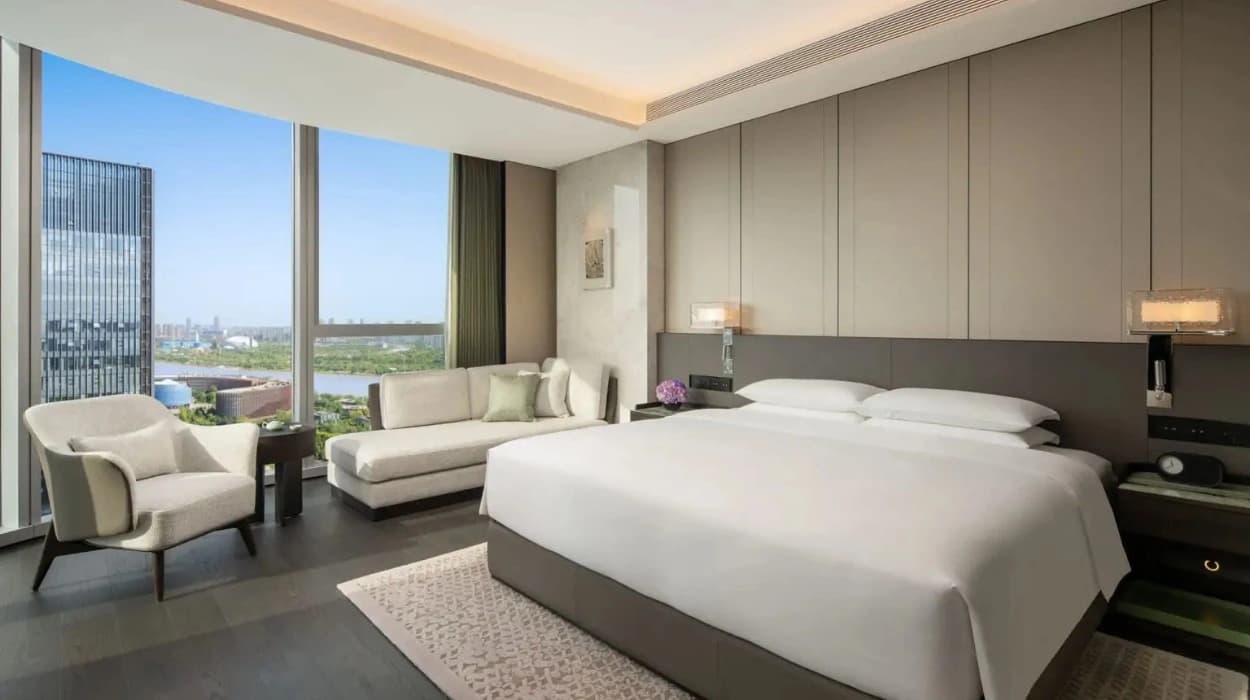The new Hyatt Regency hotel has officially opened in Xi’an
Chanba, a rapidly developing tech and business district in China. The debut
coincides with evolving travel trends in the region, reflecting a cautious
return of both business and leisure travelers amid changing industry dynamics.
Official Launch and Location Importance
The Hyatt Regency Xi’an Chanba marks a significant expansion
for the global hotel brand in one of China’s emerging urban hubs. Situated in
the Chanba Ecological District, known for its innovation-driven economy and
growing international business presence, the hotel aims to serve both corporate
and leisure guests.
The opening announcement, highlighted by a statement from
Hyatt's regional management shared with Hotel News Resource, outlines the
hotel's commitment to delivering world-class hospitality combined with local
cultural elements to visitors of Xi’an. A Hyatt spokesperson said,
“We are
proud to bring the Hyatt Regency experience to Xi’an Chanba, meeting evolving
guest expectations in this dynamic city” (Hotel News Resource).
Travel Industry Context and Market Position
As reported by business travel analyst Jane Richards of
Business Travel News, the launch reflects a broader trend where hotel brands
expand strategically in growing Chinese cities despite shifts triggered by global
travel disruptions in recent years. Richards notes,
“Hyatt Regency’s choice of
Chanba underlines confidence in the area’s long-term potential as a business
travel destination, even as leisure travel patterns continue to fluctuate”
(Business Travel News).
Industry experts from Hospitality Insights at EHL emphasise
that Xi’an’s wider appeal is driven by infrastructure improvements and its dual
role as a historic site and modern innovation centre, attracting diverse
traveler demographics. The new Hyatt Regency arrives not only as accommodation
but as a venue tailored for conventions and corporate gatherings.
Hotel Features and Amenities
The Hyatt Regency Xi’an Chanba boasts over 300 rooms
designed to balance comfort and functionality, equipped with modern
technology-enabled workspaces. According to the hotel’s official press release,
the property includes multiple dining venues featuring local and international
cuisine, fitness and wellness facilities, and flexible meeting spaces adaptable
to small or large events.
The hotel aims to provide an integrated guest experience
that caters to emerging preferences for holistic stays combining productivity
and relaxation. This approach is consistent with global luxury hotel trends
focusing on lifestyle and wellbeing.
Challenges Amid Shifting Travel Preferences
While the opening is a positive indicator, coverage by
industry sources such as the Hotel News Resource prudently highlights ongoing
uncertainties affecting the hospitality sector. Analysts point to fluctuating
international arrival numbers due to geopolitical tensions, COVID-19
aftereffects, and evolving consumer behaviours that increasingly favour
short-haul and domestic travel.
Travel correspondent Tim Brandt of UK Hospitality Today
commented,
“The Hyatt Regency Xi’an Chanba launch is timely, but the hotel will
need to remain agile to navigate unpredictable demand and changing guest
expectations in the near term” (UK Hospitality Today).
Local Economic and Tourism Impact
The new Hyatt is expected to contribute to Xi’an Chanba’s
economic development by creating jobs and supporting the local supply chain.
Analysts forecast positive ripple effects on adjacent businesses and highlight
the strategic impetus to position Chanba as an integrated business-tourism
district.
Local government statements conveyed in reports by Chinese
media underline the priority given to balancing sustainability and growth,
echoing the hotel’s own environmental initiatives. The hotel management
described their sustainability goals in a feature published by Hospitality
Insights, emphasising energy efficiency, water conservation, and community
engagement as priority areas.
The Hyatt Regency Xi’an Chanba’s debut is a notable
milestone reflecting both regional growth and the complexity of today’s travel
environment. By leveraging the district’s emerging status as a business and
cultural centre, the hotel embodies a blend of international hospitality with
local integration.
As the sector adapts to new travel patterns, the property’s
success will likely hinge on maintaining flexibility and responsiveness to
evolving guest needs. This opening represents both opportunity and challenge in
the current hospitality landscape amidst shifting travel trends.

